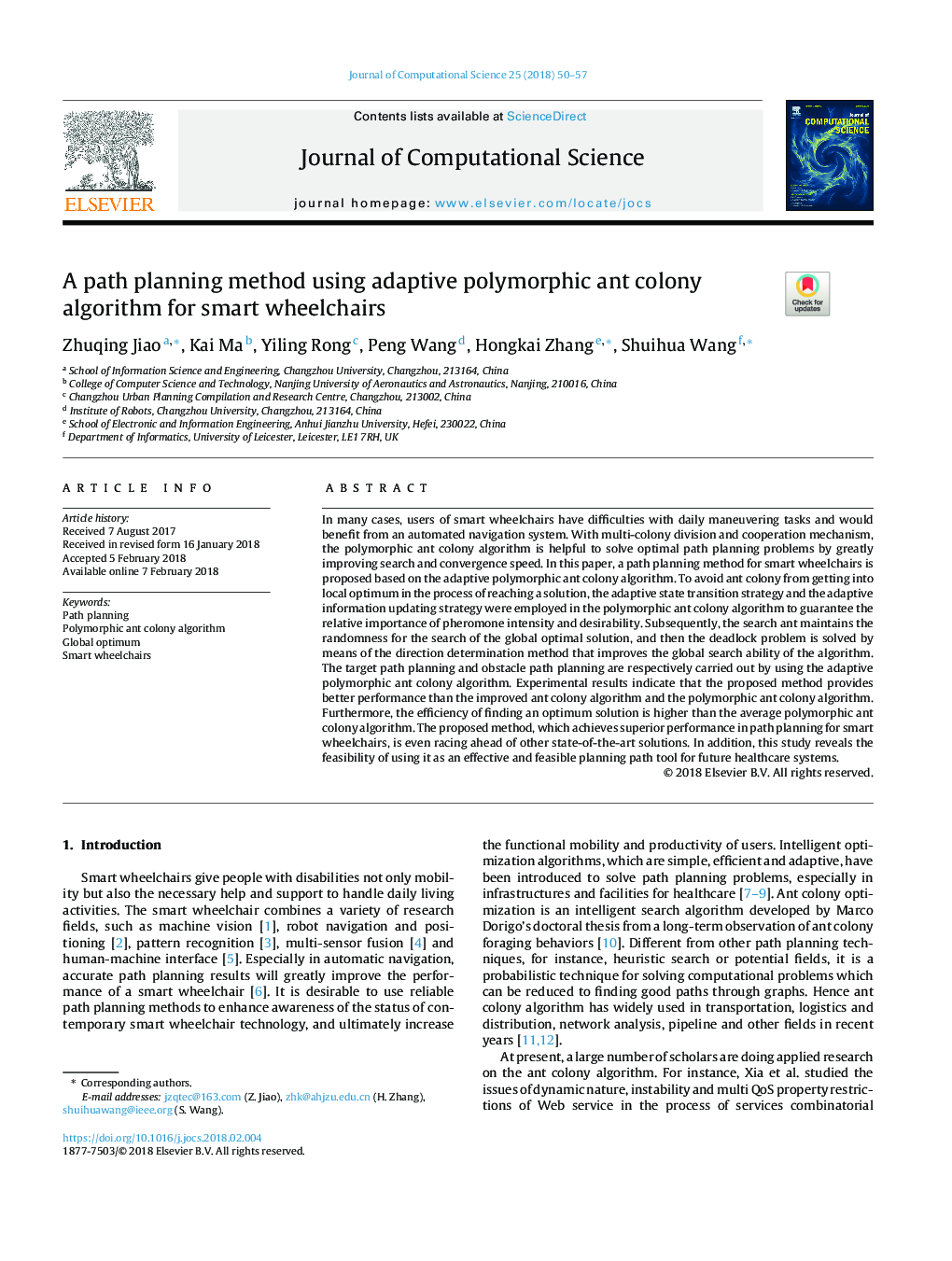| Article ID | Journal | Published Year | Pages | File Type |
|---|---|---|---|---|
| 6874453 | Journal of Computational Science | 2018 | 8 Pages |
Abstract
In many cases, users of smart wheelchairs have difficulties with daily maneuvering tasks and would benefit from an automated navigation system. With multi-colony division and cooperation mechanism, the polymorphic ant colony algorithm is helpful to solve optimal path planning problems by greatly improving search and convergence speed. In this paper, a path planning method for smart wheelchairs is proposed based on the adaptive polymorphic ant colony algorithm. To avoid ant colony from getting into local optimum in the process of reaching a solution, the adaptive state transition strategy and the adaptive information updating strategy were employed in the polymorphic ant colony algorithm to guarantee the relative importance of pheromone intensity and desirability. Subsequently, the search ant maintains the randomness for the search of the global optimal solution, and then the deadlock problem is solved by means of the direction determination method that improves the global search ability of the algorithm. The target path planning and obstacle path planning are respectively carried out by using the adaptive polymorphic ant colony algorithm. Experimental results indicate that the proposed method provides better performance than the improved ant colony algorithm and the polymorphic ant colony algorithm. Furthermore, the efficiency of finding an optimum solution is higher than the average polymorphic ant colony algorithm. The proposed method, which achieves superior performance in path planning for smart wheelchairs, is even racing ahead of other state-of-the-art solutions. In addition, this study reveals the feasibility of using it as an effective and feasible planning path tool for future healthcare systems.
Keywords
Related Topics
Physical Sciences and Engineering
Computer Science
Computational Theory and Mathematics
Authors
Zhuqing Jiao, Kai Ma, Yiling Rong, Peng Wang, Hongkai Zhang, Shuihua Wang,
